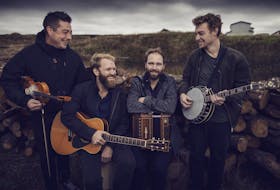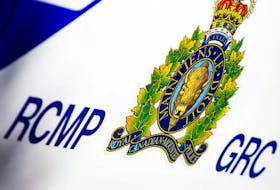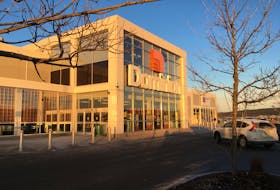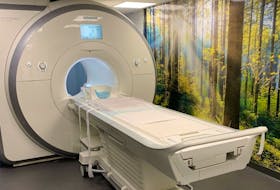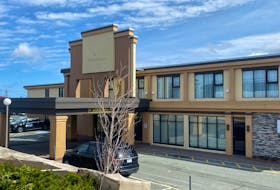Ralph and Fred Carter are sure their dad was beaming down on them with pride Friday.
The brothers were bequeathed nearly 200 acres of land adjacent to Barachois Pond Provincial Park when their father, Fred Carter sr., died in 1992.

When he was alive, Mr. Carter had thoroughly enjoyed the land, which had been given to him as a christening present in 1927.
Mr. Carter, along with his good friend Dick Banfield, spent a lot of time on the land, hunting and fishing and relaxing at the cabin nestled alongside the salmon river.
After Fred Carter Sr. died, Mr. Banfield continued to maintain it and enjoy it with his own family and friends.
When Mr. Banfield died in 2015, the Carter brothers wondered what they would do with all the land left to them. Fred, who lives in Toronto, and Ralph, who resides in Montreal, decided to look into how it could be conserved for the general public to enjoy.
That process became an official reality Friday with the announcement of the 195-acre Barachois Brook Nature Reserve by the Nature Conservancy of Canada.
“The land is there to be preserved forever now and his name and memory will live on,” said Ralph. “We both feel that dad is smiling down on us today and saying, ‘good on you.’”
Fred was glad to see some of their dad’s old friends at Friday’s ceremony to announce the nature reserve. He was even happier to know the land once enjoyed so much by his family will be available for the general public to also appreciate for long into the future.
“Because the land is so accessible, it may be used by many people and I hope the Nature Conservancy of Canada promotes it as a place to go hiking and to enjoy the natural beauty,” said Fred. “The fact people may continue to enjoy it gives us great pleasure.”
The Carters donated a portion of the land through the Government of Canada’s Ecological Gifts Program, which provides enhanced tax incentives for individuals or corporations donating ecologically significant land. The Nature Conservancy of Canada also raised funds to purchase another portion of the land from the Carters to be preserved.
The Carters, both of whom have fond personal memories of spending time at the property growing up, have kept some of the land owned by their father for their own continued personal use.
The federal government also provided the Nature Conservancy of Canada with around $59,000 through the Natural Areas Conservation Program for an endowment fund to maintain the property into the future.
“We plan for the future today and, before we take ownership of land, we want to make sure we will be able to be responsible stewards of it forever,” said Megan Lafferty, the organization’s Newfoundland and Labrador acting program director.
Lafferty said this particular piece of land is special because it’s a large section of mature forest habitat located next to a provincial park.
The Barachois Brook Nature Reserve
The Barachois Brook Nature Reserve is a 79-hectare (195-acre) nature reserve bordering Barachois Pond Provincial Park, near Stephenville.
The new reserve features a mix of white spruce, black spruce and balsam fir forest, a variety of wetlands, and surrounds just over two kilometres of Barachois Brook, an Atlantic salmon river.
The nature reserve is located in an area that provides habitat for fox, snowshoe hare, black bear and dozens of species of birds, including ruffed grouse, black-and-white warbler and Swainson’s thrush. The American marten, a threatened species in Newfoundland and protected under Canada’s Species at Risk Act, is also found in the area.
As with the majority of its nature reserves, the Nature Conservancy of Canada will allow public access for recreational and traditional uses.
Source: Nature Conservancy of Canada
Weblink:
To learn more about the Ecological Gifts Program: https://bit.ly/2vODocG

